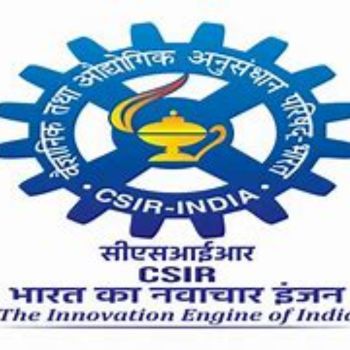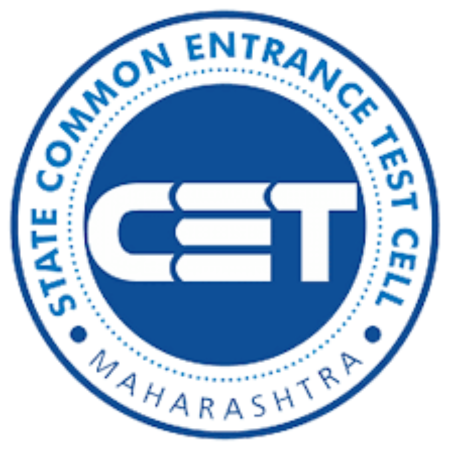Ph.D in Electronics Engineering is a research-oriented doctorate degree program. The course duration may vary from 3 to 5 years, depending on the research topic, facilities, learning capabilities of an individual, as well as the institute’s policy.
To register for Ph.D. Electronics Engineering, the minimum eligibility criteria is having 55% in a Master’s degree (M.E./ M.Tech/ /M.Phil or other relevant PG program) and qualifying for the common PhD entrance exam. Candidates with M.Phil Qualification can directly apply to Ph D Computer Applications and appear for an interview or project proposal.
Admission to the Ph.D. programme is strictly based on the combined weightage of entrance exam score + SOP/project proposal that shows the potential of a candidate as well as the research he/she is interested in.
Ph.D. in Electronic Engineering is offered by several colleges like IITs, NITs, IISc,Birla Institute of Technology and Science (BITS) Pilani, Vellore Institute of Technology (VIT), etc. The course fee varies among these institutes and also depends on the funding agency, project type, fellowship, etc.
Table of Contents
- PhD Electronics Engineering Key Highlights
- What is a PhD in Electronics Engineering?
- Why Study PhD in Electronics Engineering?
- Who should study PhD in Electronics Engineering?
- PhD Electronics Engineering Eligibility Criteria
- PhD Electronics Engineering Entrance Exams
- PhD Electronics Engineering Colleges in India
- PhD Electronics Engineering Admission Process
- PhD Electronics Engineering Syllabus
- PhD Electronics Engineering Job Opportunities in India
- PhD Electronics Engineering FAQs
PhD Electronics Engineering Key Highlights
The key highlights of Ph.D. Electronics Engineering are tabulated below.
What is a PhD in Electronics Engineering?
A PhD in Electronics Engineering is a research-based doctorate degree that provides you a platform to work on your research interest independently. The program often varies in the specialisation based on the research focus and research project of an aspirant. Some universities offer PhD in Electronics & Communication, whereas others offer PhD in Electronics.
The program involves seminars, coursework, conferences, paper publication, thesis writing and final viva or defense. However, publishing a research paper is not a compulsion to obtain a degree as per the latest UGC guidelines.
Why Study PhD in Electronics Engineering?
PhD in Electronic Engineering offers a platform to conduct research in the area of your own interest. It provides an opportunity to visit international conferences in your field where you can interact with renowned scientists, industry experts, and peers to network globally.
- Ph D in Electronic Engineering will lead to a well-reputed career in Academia as well as Industrial Research.
- One can become a Professor or R&D Scientist and develop patentable products, programs, software, etc, and contribute to the national growth.
- By publishing your research during the Ph D, you can add to the existing literature in your field. Such authorship ensures your professional growth in this field.
- One can also receive a prestigious fellowship for a PhD program from various government-funded schemes or projects. For example, SHODH, CSIR-JRF, DST etc.
Who should study PhD in Electronics Engineering?
PhD Electronics Engineering is a good fit for those interested in shaping their career in Academics and Research.
- People who want to become Assistant Professors in Universities must pursue PhD in Computer Applications as this is a primary eligibility for such positions.
- Those with a curious mind and innovative ideas should go for a PhD in Electronics or Electronics Engineering as it offers a great platform to conduct research and develop innovative methods/products/tools/devices/ etc.
- Individuals looking to work in R&D departments of industries should pursue this program as it offers a direct position of a Research Scientist or R&D Manager.
- People with a knack for innovation in Electronic Devices along with ML and AI must go for PhD in Electronics Engineering as it is an ever-emerging field in India.
PhD Electronics Engineering Eligibility Criteria
Given below is the detailed eligibility criteria for the PhD in Electronics Engineering. Aspirants must meet the following criteria in order to be considered eligible for PhD in Electronics Engineering:
- PhD Computer Application eligibility criteria involve passing a master's degree such as M.E/MTech Electronics Engineering (minimum of 55% marks or an equivalent CGPA).
- Apart from this, an entrance exam qualification is mandatory followed by a personal interview and a research project proposal.
PhD Electronics Engineering Entrance Exams
Registering for a PhD in Electronics Engineering requires qualifying common entrance exams conducted by National/State/institute regulatory bodies. Some of the common entrance exams are mentioned below.
PhD Electronics Engineering Colleges in India
PhD Electronics Engineering is offered by many institutes. Some of the best PhD Electronic Engineering colleges are tabulated below.
PhD Electronics Engineering Admission Process
PhD admission generally involves multiple phases including, application, entrance exam, interview, project proposal, counselling, guide allotment, and commencement of the research.
Here, a step-wise PhD Electronic Engineering admission process for Pondicherry University is given.
Step 1. Applicants have to visit the official website of the university “https://www.pondiuni.edu.in/programs/ph-d-electronics-communication-engineering/”and fill out an application form.
Application form is released based on the available positions and faculty interests.
Step 2. The university conducts its own entrance exam for screening. Therefore, after filling the form, they will call you to appear in the exam.
Step 3. Post examination, the university will prepare a merit list and release the list of shortlisted candidates. All applicants have to regularly visit the website for such updates.
Step 4. Shortlisted candidates will be then called for a personal interview and project proposal. Here candidates have to present their research ideas in front of a panel. They will screen you based on your research abilities and impact of the research idea.
Step 5. Further, selected candidates will be allotted with suitable supervisors. For this allotment, counselling may be conducted. Supervisor selection and admission/registration is done with a mutual consent of the candidate and allotted guide.
Documents Required:
- Original Marksheet of 10th and 12th grade
- UG and PG degree certificates.
- School Leaving Certificate
- Caste Certificate (if applicable)
- Birth Certificate
- ID Proof (Aadhar/ PAN/ Passport)
- Passport-size Photograph
- Entrance exam scorecard
- Signature
- SOP
PhD Electronics Engineering Syllabus
As a PhD in Electronics Engineering is a research-oriented program, it has no fixed syllabus. Aspirants have to undertake mandatory coursework during their 1st year of PhD. This coursework varies between universities and highly depends on the PhD topic of an individual. Here, general and compulsory coursework subjects are tabulated..
PhD Electronics Engineering Job Opportunities in India
PhD Electronics Engineering opens the door to work in Telecom, Research Centres, Academics, Semiconductor companies, Automotives, Government-funded projects at national institutes.
The table below details the best PhD Electronics Engineering jobs or post-PhD positions.
PhD Electronics Engineering FAQs
Is PhD Electronics Engineering and PhD Electronics and Communication same?
No, these two PhD Specialisations are not exactly same but they are related and interdisciplinary research. The former is a broader field focusing on the design and development of electronic devices and circuits, including areas like microelectronics, signal processing, and embedded systems while a later is a more specialized discipline that emphasizes the application of electronics for transmitting and receiving information, with a strong focus on topics like wireless communication, networking, and telecommunication protocols.
Is it mandatory to have paper publication for PhD Electronics admission?
No, publication is not mandatory for admission to PhD programs in India. However, in foreign universities, publication is required as it shows your dedication and potential for PhD and research.
Can I select a research area based on my interest for my PhD in Electronics Engineering?
Yes, candidates have to present their own research interest/idea while giving a project proposal for admission. However, a final selection of the project/candidate/or research title is made based on the research potential, impact, ability of the candidate, expertise of faculties, and facilities available at the institute. It is advised to that applicants go through the current research areas/focus of their chosen universities before applying.











